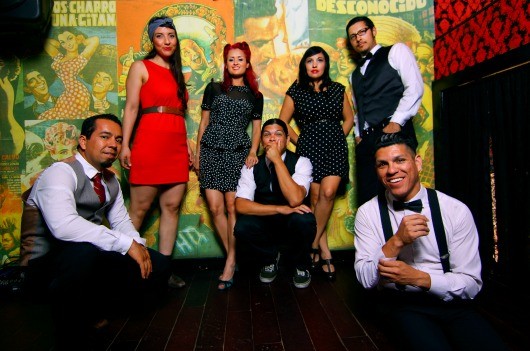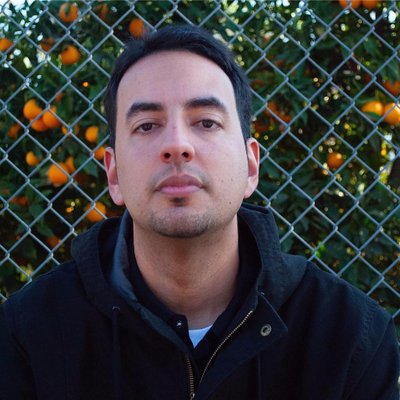
The phrase “Yo no creo en fronteras!” has become the unofficial mission statement for East LA's eclectic folk outfit Las Cafeteras. The line from their rabble-rousing hit “La Bamba Rebelde” is an apt description of how cavalier they are about crossing stylistic and geographical borders with their music. This year alone, they've dabbled in mainstream pop, opened for Colombian superstar Juanes in Miami, and did a live collaboration with the LA Philharmonic. With every new step they take, the title of their 2012 release, It's Time, feels more and more prophetic.
Before they became a band, the members of Las Cafeteras were students. “We were all friends, family, activists and organizers who knew each other before we even started playing music,” says Denise Carlos, who once trained as a dancer.
]
In the mid-2000s, Carlos, Leah Gallegos, Annette Torres, Daniel French, and brothers David and Hector Flores studied the Veracruz-based, West African-influenced Mexican tradition of son jarocho at free classes offered by a friend at El Sereno's Eastside Café. Years later, the co-ed crew, with the addition of Jose Cano, named their group after the space that molded them.
Though they struggled to forge an identity, they eventually crafted a sound anchored in the instrumentation of son jarocho but incorporating other forms of expression such as hip-hop, Native American music and cumbia rhythms. The band's big opportunities and successes affirmed their risk-taking decisions. “It's proof to us that there's a hunger for [not only] this sound, but also the message that we're putting out there,” Carlos says.
That message includes immigrant-rights issues, the politics of the Chicano Movement, and the stories of the neighborhoods in which they grew up. “It's a remixed perspective of what it means to be Chicano,” says French, a vocalist and jaranero who says his band is like Gogol Bordello-meets-acoustic East Los. Las Cafeteras' recent More Than Music tour took them to Canada, where they also chose to incorporate poetry and storytelling workshops at the colleges where they performed.
[
“A lot of folks have never shared something they've written, especially so personal, with a group of people before,” French says. “We also did a zapateado workshop, and some of the students came up and performed with us on one of our songs. We're really open to our space being shared and border-crossing between audience and performer.”
Gradually, the band became part of a new generation of contemporary artists from East LA, including La Santa Cecilia, La Chamba and Irene Diaz, among others. Earlier this year at Self Help Graphics in Boyle Heights, the group experienced an unforgettable moment in that spirit. “We were able to play 'La Bamba Rebelde' with Los Lobos!” Carlos excitedly recounts of the improvisation initiated by the legendary, veteran musicians who popularized “La Bamba,” son jarocho's most well-known song, in the Ritchie Valens biopic of the same name. “For them to say that they were passing the torch to us was amazing.”
While Las Cafeteras prepare for a new album, they are still taken aback at how far they've come as a band. “I think it's a beautiful thing that something can grow from a very organic community class,” says Carlos, “to being onstage, where people are applauding you for singing and playing.”
Las Cafeteras perform as part of MEChA'a Día de los Muertos celebration at Cal State Fullerton's Humanities Quad, 800 N. State College Blvd., Fullerton, (657) 278-3846. Thurs., Nov. 7, 8 p.m. Free. All ages

Gabriel San Román is from Anacrime. He’s a journalist, subversive historian and the tallest Mexican in OC. He also once stood falsely accused of writing articles on Turkish politics in exchange for free food from DönerG’s!

